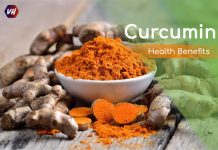Turmeric is a spice regularly used in Asian dishes. And curcumin in the spice is what’s made turmeric beneficial as an herbal supplement. Curcumin is an antioxidant with anti-inflammatory features, but curcumin side effects are serious. While analyses on its use are limited, it may also help decrease cholesterol levels and avoid certain types of cancer. Turmeric is not permitted by U.S. Food and Drug Administration to treat any ailments. Also by taking turmeric supplements can produce unpleasant or serious side effects. Talk to your doctor in advance taking turmeric or any other supplement. Here are some curcumin side effects:
Curcumin Side Effects
Gallbladder and Kidney Problems
The curcumin in turmeric boosts the gallbladder to produce more bile, which may develop digestion. Because of the additional bile production, people who have gallstones or other disorders that chunk bile passages. People shouldn’t take turmeric before checking with their doctors, warns the American Cancer Society. Turmeric may also contribute to the development of kidney stones mainly in people who have conditions that rise the risk of kidney stones. A study published in the “American Journal of Clinical Nutrition” in 2008 found that contestants who took turmeric had greater urinary oxalate levels. Oxalate is a waste product that should depart the body through urination, but if there’s too much oxalate, it can fix with calcium and form kidney stones.
Blood thinning
There is some indication to advise that curcumin may provoke anticoagulant (blood thinning) effects. In other words, it is possible that curcumin could slow blood coagulating which may rise your risk for bleeding and/or bruising. If you’re already taking a blood thinner, remember that curcumin may worsen and/or amplify its effects to unwanted level.
For this purpose, medical literature suggests discontinuation of curcumin at least 2 weeks prior to surgery. If you you think that curcumin is thinning your blood to an unwanted level, discuss the inferences with a medical expert. Those that have been identified with preexisting bleeding complaints may want to avoid using curcumin.
The spice can also rise the use of some drugs, including blood thinners and diabetes medicines. Taking turmeric with blood thinners can rise the possibility of bleeding. This consist of taking it with other herbs that act as blood thinners, including ginger, clove, garlic ginseng and willow.
Gastrointestinal Side Effects
By using turmeric in preparing food is safe and unlikely to produce side effects. Taking huge doses of the spice or of supplements can effect in gastrointestinal side effects. The most usual gastrointestinal side effects are stomachache, gas, nausea and indigestion. Talk to your doctor. And also decrease the quantity of turmeric you’re taking if you experience any of these curcumin side effects. Taking turmeric also for long periods can cause ulcers in certain people due to increasing stomach acid, according to the University of Maryland Medical Center.
Diarrhea
The most common curcumin side effects related with curcumin supplementation is diarrhea. Curcumin often annoys the gastrointestinal tract. It leads users to report stomach aches and in many circumstances, diarrhea. In some instances, diarrhea may effect from taking curcumin at unusually high doses and/or on an empty stomach.
To lessen potential diarrhea related with curcumin, be sure to manage it after a large meal and/or think decreasing your dosage. The mixture of post-meal ingestion, as well as dosage reduction, may be an operative plan for preventing curcumin-induced diarrhea. Also remember that sometimes it may take the body, some days to adapt to a newly presented supplement.
Pregnancy Concerns
Pregnant women should not take turmeric as a supplement. According to MedlinePlus, the curcumin can stimulate the uterus. Also it urge the uterine lining to shed, which could rise the risk of miscarriage. It is safe for pregnant women to eat food spiced with turmeric. Also pregnant women should talk to their doctors about any worries with the spice before using it.
Diabetes
Turmeric might lower blood sugar. Avoid turmeric if you take diabetes medicines, because turmeric could affect your blood sugar to fall even more. It could result in hypoglycemia.
Vomiting
Though tremendously rare, some individuals could also vomit as a consequence of curcumin-induced nausea. If you’re becoming nauseous as a consequence of curcumin supplementation. It may be crucial to scale back the dosage as to avoid vomiting. Vomiting could also be an indication of a bad batch as well as allergic effect, an interaction with another material, and/or numerous other issues.
If you’ve vomited while consuming curcumin, as you are sure that curcumin is to blame. Attempt scaling back the dose and/or consider that it may be an allergic effect. In always pursue instant medical attention as to identify the exact causes for your vomiting. If every time you take curcumin, you sense nauseous and/or vomit, it’s likely a symptom that you’re incapable to bear it.
Skin rash
If you take a curcumin supplement, there’s a possibility that you may end up with a skin rash as an effect. A small ratio of the population is be allergic to curcumin, and upon ingestion, it produces a rash. As a result rash could also be caused in the occasion because curcumin leaks from the tablets and comes in contact with the skin. It yields a condition known as “contact dermatitis.”
Submit your review | |































